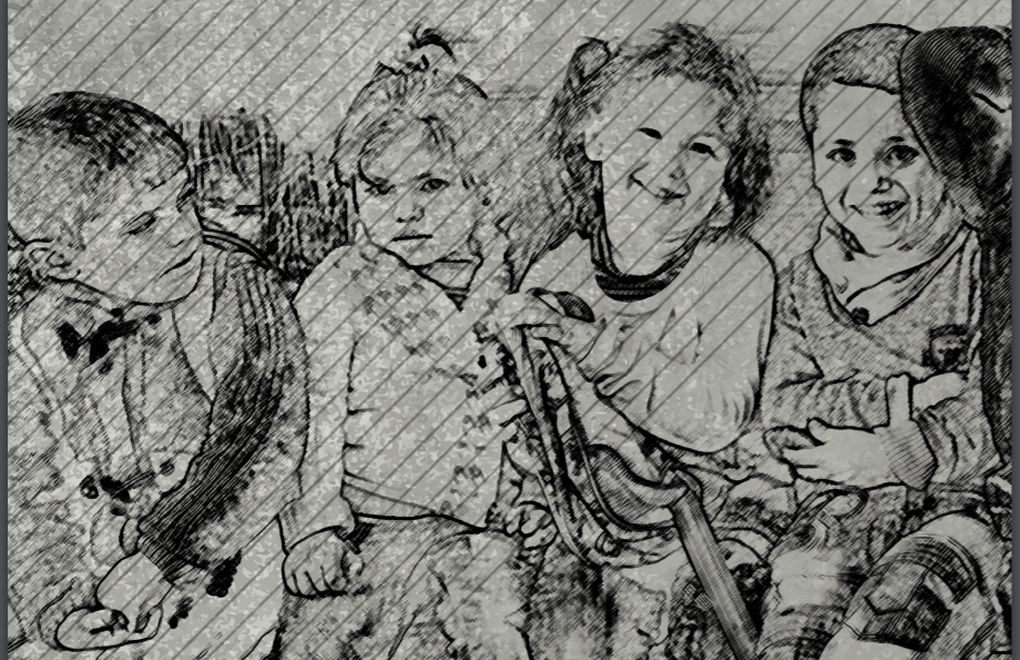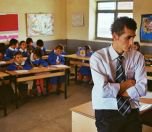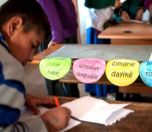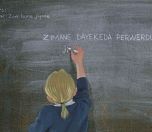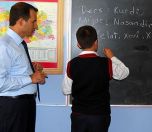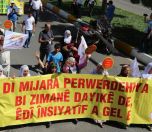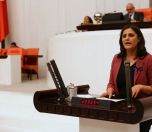Click to read the article in Turkish
The Migration and Humanitarian Assistance Foundation (GİYAV) has published its Report on Monitoring Children's Mother Language Use in Turkey's Kurdish-majority southeastern province of Diyarbakır.
Conducting a monitoring and reporting study on "Linguistic Rights" in order to understand what is happening in terms of mother language rights and to advocate on the basis of children's experience and suggestions, the GİYAV aims to reveal how the developments regarding "Mother Language Rights" and the reservations made to the United Nations Convention on the Rights of the Child (UNCRC) are reflected in the lives of Kurdish children.
In the study regulated with the reservations made by Turkey to the UNCRC, the rights of children to access media products in their mother language (Article 17), to receive education in their mother language (Article 29), to live their own culture and to use their mother language (Article 30); the fundamental principles of the Convention, which are the right to life, survival, and development, were discussed within the framework of the prohibition of discrimination, child participation and the best interests of the child.
Article 17 - States Parties recognize the important function performed by the mass media and shall ensure that the child has access to information and material from a diversity of national and international sources, especially those aimed at the promotion of his or her social, spiritual, and moral well-being and physical and mental health. Article 29 - States Parties agree that the education of the child shall be directed to; the development of respect for the child's parents, his or her own cultural identity, language, and values, for the national values of the country in which the child is living, the country from which he or she may originate, and for civilizations different from his or her own. Article 30 - In those States in which ethnic, religious, or linguistic minorities or persons of indigenous origin exist, a child belonging to such a minority or who is indigenous shall not be denied the right, in community with other members of his or her group, to enjoy his or her own culture, to profess and practice his or her own religion, or to use his or her own language. | |
As part of the monitoring study, human rights indicators were developed using international human rights standards to understand whether the public administration fulfills its obligations regarding children's language rights. The monitoring report was prepared based on the findings of in-depth interviews conducted with parents, teachers, school founders, artists, media workers, representatives of non-governmental organizations, and local administrative groups, consisting of 20 children and 40 people living in Diyarbakır.
Findings
All adults participating in the study said that their mother language is Kurdish. Although most of the parents stated that they mainly speak Kurdish in the household, some participants stated that they have bilingual communication with children, while some of the participants stated that they speak Turkish with their children because they do not speak Kurdish themselves:
'There is a need for a revolutionary mentality'
"Two of my little ones do not know how to speak at all, the others understand and do not know how to speak. When I speak, my children look at me blankly."
"Usually we speak 70 percent Turkish, but there is a thirty percent of Kurdish, which is my reality, so it would be a lie if I say I'm talking to my children in that language."
"My mother's language is my language. I normally speak Turkish, but I know a little bit of Kurdish."
"Turkish, but our mother language is Kurdish, but we speak Turkish."
"So I generally speak Turkish everywhere since I do not speak Kurdish. But I want Kurdish to be used, but we speak Turkish because I am not able to speak much."
"We are trying to resist in our old mother language and not to forget it, but because the language of education is switched to Turkish by force, there is a contradiction because no alternative is left. Such multilingualism gives one as free a space as possible, the other is constrained, it is troublesome."
"There are also some reservations about speaking the mother language as if a 'terrorist' or a 'terrorist activity' is a part of it, there are also reservations due to such misinformation and such sensations."
"Speaking Kurdish, learning Kurdish is perceived as a political stance. There is a need for a revolutionary mentality."
What did the children say?
GİYAV team determined that the children thought Kurdish was forbidden in the questions they asked about Turkish:
"Although it is not forbidden to speak Kurdish, children's expressions revealed that they were subjected to de facto obstructions and exclusion when speaking in their mother language in their daily lives."
Some of the interviewee children have said:
'If I see an officer, I speak Turkish'
"Because speaking Kurdish is not tolerated at school, and also, in terms of the system, our language is banned, we communicate more in Turkish."
"I think it is forbidden to speak Kurdish at school. We, right away, prefer Turkish. Because very few people know. I know a little too."
"When I see someone old, I start talking in Kurdish. If I see that the teacher's style is more official, I start talking in Turkish."
"We often speak Kurdish with my friends, whom I am close with, during the break, and we speak Turkish during the lessons with the teachers."
"Yes, we speak Turkish during the lesson. I speak Kurdish with my friends who can speak Kurdish."
Conclusion
GİYAV made the following assessment in the Conclusion of the report;
"When we concluded our study, we found that children were deprived of the right to live their own culture, to use and learn their mother language, to receive education in their mother language, to access media products, and to access application and complaint mechanisms. We have determined that disabled and poor children are in a much more disadvantaged position compared to other children in terms of obtaining these rights.
"Another aim of our study was to see how the reservations placed in the three articles of the UNCRC, which includes mother language rights, are reflected in the lives of children and to evaluate to what extent Turkey fulfills its responsibilities arising from the Convention.
"In this context, when we have examined the 4th and 5th Periodic Reports of Turkey, the UN Committee on the Rights of the Child was not given detailed information on the special measures taken regarding the right of children to develop their own culture and use their language, periodic reports were not prepared regularly and on time, and we saw that they are contented with conveying only general information on the subject in the report.
"The civil society representatives we interviewed in our field research also said that their views on mother language rights have never been asked."
If children were the administrators..."I would open a school dedicated to Kurdish, I would wish Kurdish to become widespread." "I would open up spaces in society for everyone to speak in their own language." "I would open theaters. If I wanted to teach Kurdish in theaters, I would make them speak Kurdish, if I wanted to teach Turkish, I would make them speak Turkish. I would give children something like a book in their hands, and those words would be written in there. So for example let's say that a guy says, "How are you, are you okay?" let it be written there too, like 'Çer Dıki, başı' or something." "I would suggest Kurdish in schools. I would also highlight Kurdish subtitles on television channels. Apart from that, I would also use Kurdish in written sources." "I would take out a heavy lesson, and for example, let's say 12 lessons a week, there is mathematics, I would reduce it to 10 lessons, I would put two Kurdish lessons in, it would be more comfortable." "I would actually teach in schools, just as they give German and English lessons, I would also have them teach Kurdish." "I would free all languages. I would wish everyone could use their language freely, you could use whatever language you want to use." "Haaa, if I were a state administrator, for example, let me talk about my own grandmother, she does not speak Turkish. She speaks Kurdish, but when she goes to a hospital or a social aid to another association or another place, she cannot benefit from any institution and cannot directly contact herself. Because she only knows Kurdish. For her, it might be better if there were a few people or, I don't know, a few officers who knew Kurdish and only communicated with people who speak Kurdish." | |
(AÖ/DCE/SD)




